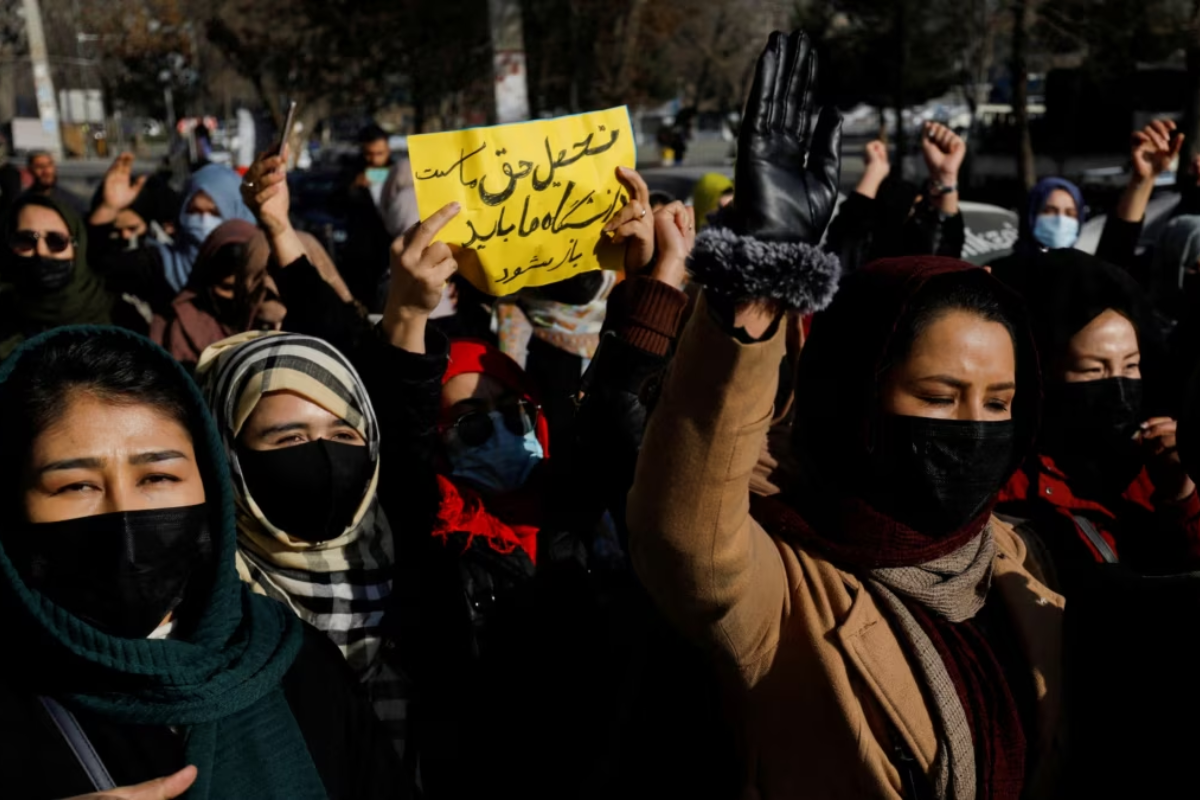How the Taliban restrict women's lives in Afghanistan
Even nursing and midwifery training now forbidden, eliminating all female education options

Latest rules require women's voices to be 'concealed' outside homes
Must be fully covered and accompanied by male relatives for travel
Muslim World League condemns restrictions as going against Islamic teachings
The Taliban authorities that rule Afghanistan have imposed a severe interpretation of Islamic law on the population, heavily restricting all aspects of women's lives.
This week, the International Criminal Court's chief prosecutor said he was seeking arrest warrants against senior Taliban leaders over the persecution of women, a crime against humanity.
The government claims it secures Afghan women's rights under Sharia law, but many of the edicts are not followed in the rest of the Islamic world and have been condemned by Muslim leaders.
The United Nations has called it a "gender apartheid", and no country has formally recognized the government since they swept to power in a lightning but largely bloodless military offensive in 2021.
Taliban authorities banned girls from public secondary classes at the start of the new school year in 2022.
A year later, universities were also closed to women.

The last options for education -- midwifery and nursing - were banned from teaching women late last year.
Afghanistan is the only country in the world where girls and women are barred from education and the move has been widely criticized by Muslim leaders -- including the Saudi-based Muslim World League.
Taliban authorities have made it increasingly difficult for women to work in a bid to keep them segregated from men.
While they held positions throughout the civil service of the foreign-backed government ousted by Taliban insurgents, women have been mostly been fired, forced to stay home, and have had their pay slashed.
Officially, women can no longer work for NGOs and the United Nations apart from in education and health, although the ban has not been strictly enforced.
The restrictions
Women are allowed to work from home or in women-majority businesses, such as textiles.
Private businesses can employ women, but in offices that are supposed to be segregated.
In cities, where women once generally already wore modest clothing and headscarves, huge billboards and posters on shop windows order them to cover their hair, faces and their bodies with a long cloak and face mask.
Women rarely appear on television, and many journalists have been pushed off screen.
They are banned from public spaces such as parks and gyms, while baths and salons have been closed down.
Women travelling long distances must be accompanied by a male chaperone.
In one of the latest orders, women cannot sing or recite poetry in public, and their voices and bodies must be "concealed" outside the home.
The Ministry of Women's Affairs was shut down and their offices taken over by the Ministry of Propagation of Virtue and Prevention of Vice, the Taliban authority's morality police.
Popular
Spotlight
More from World
India tells X to block over 8,000 accounts
X receives executive orders from Indian government to block accounts, with potential penalties for non-compliance













Comments
See what people are discussing